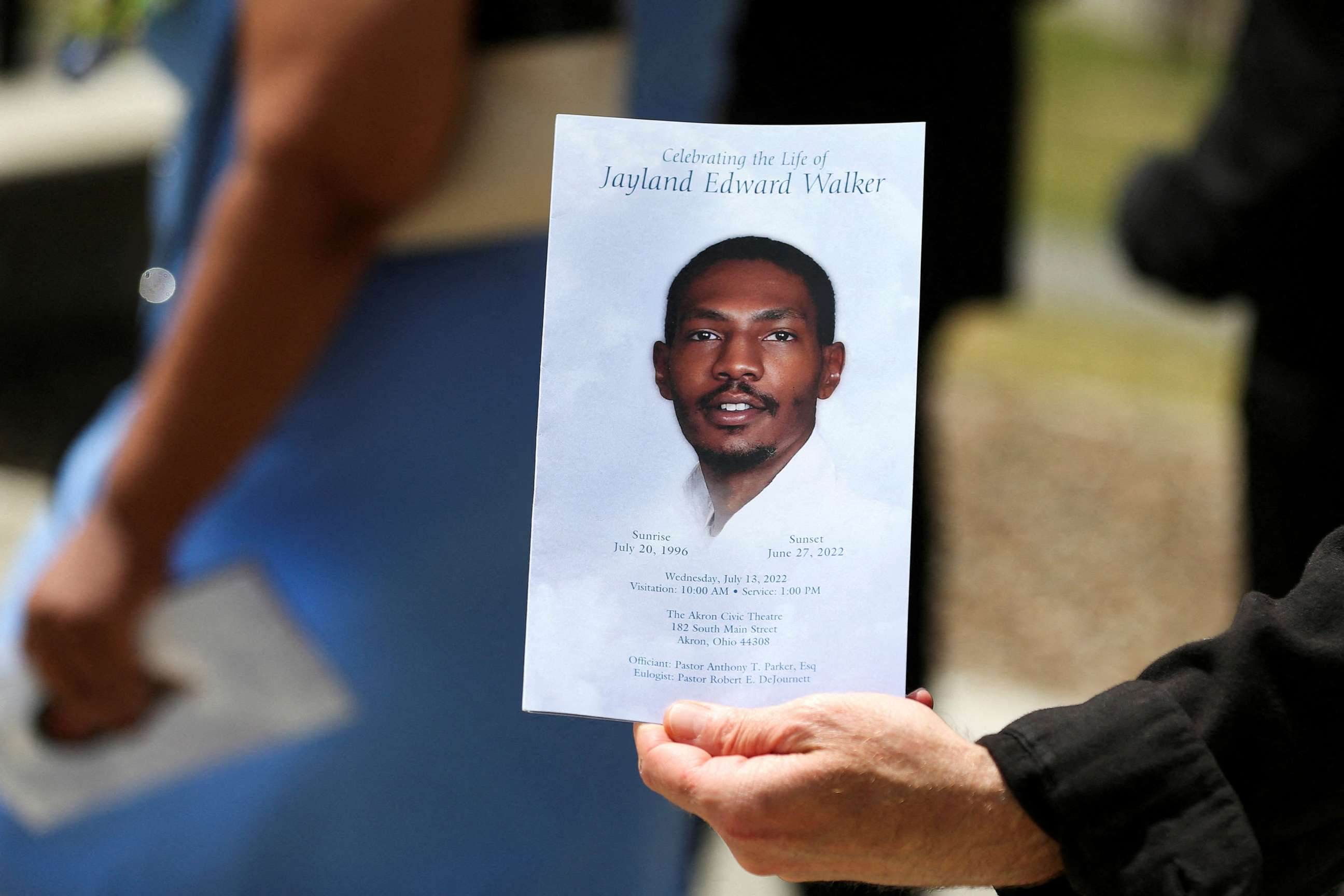Jayland Walker family files lawsuit against city of Akron, police officers
A grand jury declined to file state charges against officers in Walker's death.
The family of Jayland Walker has filed a lawsuit against the City of Akron, Ohio, as well as the eight officers involved in the shooting that led to his death after a car and foot chase with police on June 27, 2022.
The suit, filed by the family through their legal counsel, claims the officers used excessive force in their encounter with Walker.

It also states that local officials have fostered a "culture of violence and racism" in the Akron Police Department, according to the legal filing from the Walker family's attorneys.
Akron Mayor Daniel Horrigan and Chief of Police Stephen Mylett are also named as defendants in the lawsuit.
The City of Akron and the mayor's office declined ABC News' request for comment. ABC News’ request for comment from the Akron Police Department was not immediately responded to.
In April, a grand jury chose not to indict the officers on state criminal charges in connection with the 25-year-old's death.
Officers previously said they attempted to pull Walker over for a traffic violation and an equipment violation with his car. Authorities say he refused to stop, which set off a chase that ended in his death.
A flash of light, visible in body camera footage, appeared to be the muzzle flash of a gun coming from the driver's side of Walker's car, officials said.
In a second body camera video, officers can be heard saying over the radio that a shot was fired from Walker's car. The footage shows an officer following Walker's car and continuing the pursuit on side streets.
At one point, Walker slowed down and jumped out of the passenger side door before the vehicle came to a complete stop, the footage shows. The Ohio Attorney General's Office said officers attempted to use stun guns to subdue him.
Walker was running from police when eight officers fired at him, fatally shooting him. Officers claimed Walker had reached for his waistband in what was described as a cross-draw motion, "planted his foot and turned toward the officers while raising his hand," Ohio Attorney General Dave Yost said.
Walker was unarmed when he was fatally shot, authorities learned following the incident. Walker had 46 gunshot wounds to his body. According to officials, the officers fired 94 shots at Walker.
A gun was recovered inside his car.
At the time, the Akron Fraternal Order of Police applauded the grand jury's decision not to indict the officers, saying in a statement that "many officers work their entire career without discharging their weapon. A split-second decision to use lethal force is one that every police officer hopes he or she will never be forced to make.”
The grand jury’s decision was criticized by some residents and activists, who say the decision failed to hold officers accountable.
"I'm tired of the fact that not even in Akron, Ohio, can we get justice when 90 bullets -- it's not enough?" Judi Hill, president of the Akron chapter of the NAACP, previously said. "I'm having a hard time sitting next to a family that's struggling. Because I feel their pain because we all feel their pain and we can't get justice."
Walker’s death has been the catalyst for protests across the city and calls from civil rights leaders for accountability and justice in policing.
"Hearing the family this afternoon when we had to deliver the most horrible news was truly one of the worst moments of my life. I can't even imagine the pain," said Kenneth P. Abbarno, one of the family's attorneys, following the grand jury's decision. "Our system has failed the Walker family. There is no accountability here."




